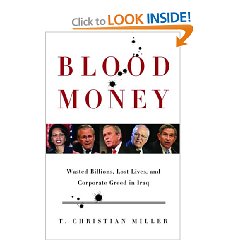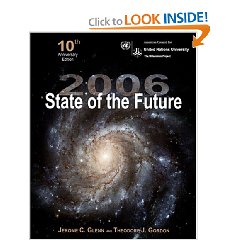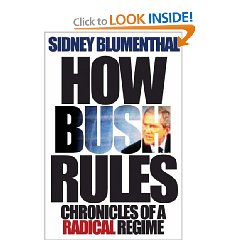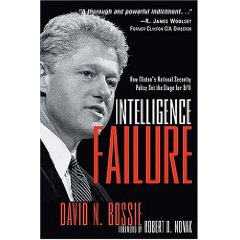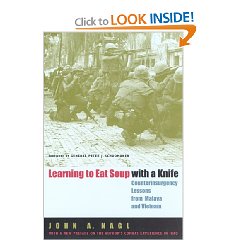
Excellent Building Block,
Blessed with a Foreword from General Peter Schoomaker, formerly Commander-in-Chief of the U.S. Special Operations Command and today the Chief of Staff of the severely beleaguered U.S. Army, this revised edition integrates the reality check that the author received under combat in Iraq, the book's first edition having been an academic reflection. The improvements are pointed out in an author's preface, and require that this edition be the one to be studied in war colleges.
The most important point in the book for me is that organizational culture–a willingness to learn and innovate or not–is an independent relevant variable for determining success under ambiguous conditions.
The author excels at documenting two facts for the future: 1) it is civil war inside of states, rather than inter-state conflict, that will be the primary military challenge; and 2) the U.S. military is not yet ready to learn and innovate, exceptions not-with-standing.
The comparison of British and US organizational cultures on page 51 is alone worth the price of the book, and can be summed up as the British excelling at long-term presence, regimental memory, bottom-up learning, emphasis on civil solutions and a minimalist use of force. The Americans are naturally the opposite, substituting technology for thinking, quantity for quality, and “shock and awe” force for reasoned instrumentalism. More tellingly, the British will go for the very long haul built on a century worth of localized presence and individualized relationships that built trust, settling for an independent country that gives England a 51% win, while the Americans demand dominance now, and 100%.
The author notes that a major contribution to British success in Malaya was the idea of a junior policeman, to offer channels for anonymous tips. The US has implemented this in Iraq, but typically relies on cell phones that most Iraqis do not possess.
The author credits Mao with having been the logical successor to Sun Tzu, Jomeni, and Clausewitz, and I would add Ho Chi Minh and today Bin Laden. Ho Chi Minh mastered tunnels; Bin Laden has leveraged suicide as a common means that changes everything about war and peace. Interestingly, the author of FIASCO was on television as I read this book, and pointed out that Paul Bremmer single-handedly gave the Iraqi insurgency the leadership (de-Bathification), the guns and volunteers (dismissing the Iraqi army), and the financing (opening the door for Iran) that would not have existed without his incredibly arrogant and ignorant decisions. It was Paul Bremmer who created the Iraqi insurgency and gave Bin Laden enormous international prestige and an increased following. See my reviews of “Blood Money” and “Squandered Victory.”
I was interested to learn from this author that the original view of the Viet-Nam war at the national level was as a replay of Korea, with the Chinese as the actual threat. Our ignorance of Viet-Nam's independence, and our deliberate refusal to allow elections, are as shocking are the ignorance of the White House regarding the Sunni-Shiite split, and its willingness to occupy Iraq rather than liberate it, to use torture and humiliation as a tactical measure without regard to its strategic cost.
The author does a good job of focusing on the importance of “the man.” History will show that Tony Zinni had it right, and Tommy Franks had it completely wrong.
I found the author's passing discussion of how the U.S. military is increasingly being charged with being an executive agent for non-military sources of national power to be especially interesting. The U.S. Central Command has 90 foreign military liaison teams co-located at its Headquarters, and a mere handful of people representing the varied agencies and departments of the U.S. Government. Inter-agency strategy and inter-agency campaign planning today are as non-existent as inter-agency tactical cooperation.
The author points out that an organizational learning model is virtually the opposition of the bureaucratic politics/budget share model that now prevails in the Department of Defense. In combination with the importance of inter-agency operations, I can anticipate the U.S. Army both replicating diplomatic, information, and economic capabilities to make up for the deficiencies of those departments, and simultaneously creating a new breed of military officer, one with the power to persuade, to be dedicated over the course of a career to herding cats–the autonomous and largely oblivious elements of the U.S. Government that are not pulling their weight in Iraq or anywhere else.
Since the early 1990's several of us have been independently proposing “four forces after next” that would cut the big war force in half, while redirecting the savings to taking small war/gendarme special forces up to $75B a year (a tripling), peace forces from zero to $100B a year, and homeland security from $15B (then) or $36B (now) to $75B a year. This author not only gets it, he helps make the case for doing precisely that. Goggling for “The Asymmetric Threat: Listening to the Debate,” no. 20 (Autumn/Winter 98-99), pp. 78-84, available online, is a good way to prepare to read this book.
I liked this book so much that I am creating a list of 13 books, none having to do with Iraq, that I recommend be read by anyone who wishes to learn not only how to eat soup with a knife at the tactical level, but how to avoid being part of someone else's soup in this new world disorder. Here is that list by title–I have reviewed all of them”
See also, with reviews:
Deliver Us from Evil: Peacekeepers, Warlords and a World of Endless Conflict
Imperial Hubris: Why the West Is Losing the War on Terror
Policing the New World Disorder: Peace Operations and Public Security
Shake Hands with the Devil: The Failure of Humanity in Rwanda
Tactics of the Crescent Moon: Militant Muslim Combat Methods
The Coming Anarchy: Shattering the Dreams of the Post Cold War
The Dynamics of Military Revolution, 1300-2050
The Fifty-Year Wound: How America's Cold War Victory Has Shaped Our World
The Sling and the Stone: On War in the 21st Century
The Sorrows of Empire: Militarism, Secrecy, and the End of the Republic (The American Empire Project)
The Unconquerable World: Power, Nonviolence, and the Will of the People
Transformation Under Fire: Revolutionizing How America Fights
Wilson's Ghost: Reducing the Risk of Conflict, Killing, and Catastrophe in the 21st Century
Robert Young Pelton's The World's Most Dangerous Places: 5th Edition (Robert Young Pelton the World's Most Dangerous Places)
See also my list of serious DVD's.
This officer has the mind-set that I want to see more of in our civilian as well as our military seniors.


